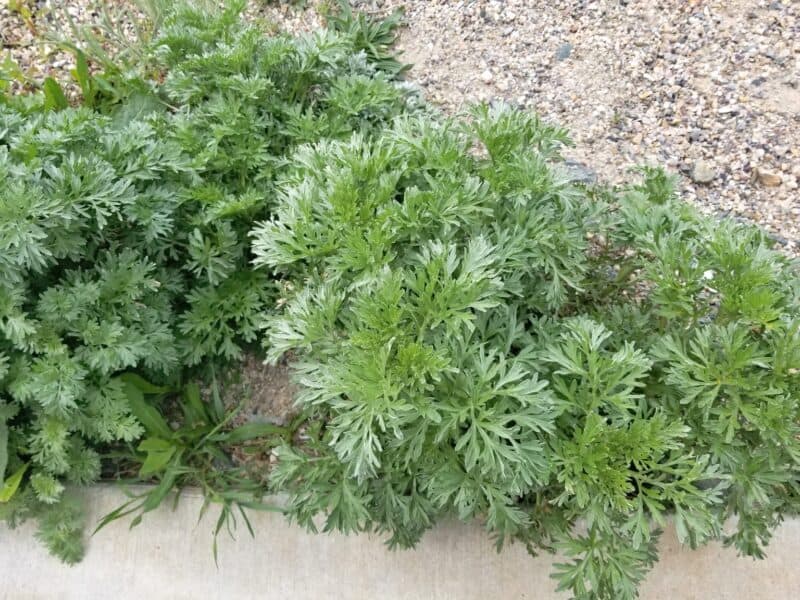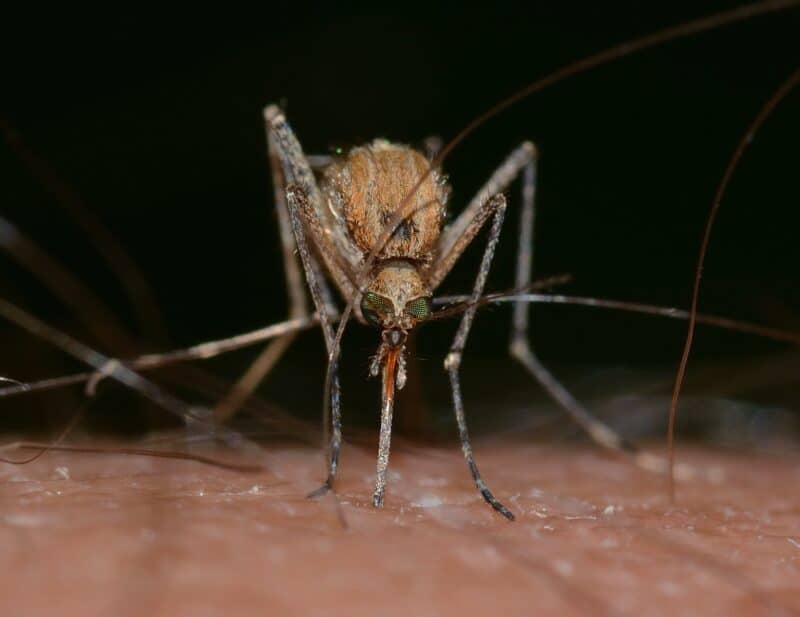I can’t think of anything more annoying than being relentlessly victimized by mosquitoes when I’m outside.
It doesn’t matter if I’m minding your own business on my back porch, camping, hiking, or even in the middle of a legitimate survival scenario, these parasites are relentless.

They can also be quite dangerous since they are known vectors of disease.
You are smart to try and keep mosquitoes away from you and avoid being bitten, but it’s easier said than done if you don’t want to resort to chemical-laden bug spray.
Luckily, there are some natural and holistic methods for repelling mosquitoes. Let’s look at sage, for instance. Does sage work to keep mosquitoes away?
Yes, sage shows a lot of promise as a mosquito repellent. The aromatic compounds in it are known to drive mosquitoes away, and burning sage seems particularly effective in conjunction with smoke.
Sage is a perennially popular kitchen herb, sure, but lucky for us, it also works as an effective, all-natural mosquito repellent.
Sage alone might not be enough to keep you from getting a few bites, but it’s definitely going to help tip the odds in your favor.
Keep reading and I’ll tell you what you need to know about it as a mosquito repellent option…
How Do Mosquitoes Find Prey?
To better understand how sage can help protect us from mosquitoes, it pays to know how mosquitoes find us in order to bite us in the first place.
Although it seems like mosquitoes are pretty much everywhere at all times, they are in reality surprisingly efficient hunters.
Mosquitoes home in on several signals, or target indicators you might say, including our body heat, our breath and the lactic acid generated by our bodies and secreted through our skin. Mosquitoes also readily detect movement.

Worst of all, if you’re exerting yourself you’re going to generate more heat, more carbon dioxide and more lactic acid meaning you’ll be sticking out to nearby mosquitoes like a flashing neon sign.
But, as good as they are at finding us, sage can keep mosquitoes away.
So Why Does Sage Work to Keep Mosquitoes Away?
Although there is some scientific literature proving the efficacy of sage as a mosquito repellent, there’re also tons and tons of anecdotal evidence and plenty of people who swear by the stuff.
It seems that there is an aromatic compound present in the oil of sage that gives it its distinctive aroma, and it is either utterly repulsive to mosquitoes or actively irritating.
This drives them away from us. They might know we are there, they might be able to see us, see our body heat or even smell us, but the sage just puts them off the chase.
Note that sage is reasonably effective at repelling mosquitoes and even some other insects when it is growing in place but it is the oil, extracted from the plant, that makes such a concentrated countermeasure against the bloodsuckers.
Burned Sage Tends to Be Particularly Effective
Something else to keep in mind is that burning sage is a great option if you want to repel mosquitoes. And no, not just ghost mosquitoes!
All jokes aside, most mosquito species have trouble dealing with smoke, and actively avoid areas where smoke is in the air.
You can get that benefit just from burning wood or leaves, but by tossing a few springs or bundles of sage on the fire, you can infuse the smoke with that same oil that is so effective against mosquitoes on its own.
This is a wonderful, safe and pleasant two-pronged approach at keeping mosquitoes away from you whether you are in the field or just in the backyard.
Does Live Sage Work Against Mosquitoes?
Yes, but not very well. Live sage is definitely fragrant and it seems like lots of insects will avoid it, including mosquitoes, but it only works over a much smaller area compared to the concentrated oil or burned sage.
Does Dried Sage Work Against Mosquitoes?
It can, but only when it’s burned to produce lots of sage-infused smoke. Dried bundles or sprigs of sage aren’t going to do much for you on their own in terms of mosquito protection.
How to Prepare Sage as a Mosquito Repellent
The quickest and easiest way to use sage to repel mosquitoes is to burn it, assuming of course that you already have a fire going or that you can build a fire safely and readily.
The next best way is to extract the oil from sage, typically done by crushing the plant using stones, a rolling pin, a mortar and pestle, or other improvised methods.
The oily residue can then be put to use in other ways, including applied directly to skin or clothes.
How Often Should You Use Sage to Repel Mosquitoes?
You can use sage to repel mosquitoes as often as necessary within reason.
If you are burning it, make sure that you keep the fire going and producing plenty of smoke, and definitely add more sage once you notice the old bundle is burned away.
If you want to make use of the oil as a mosquito repellent for your skin or clothing, you are highly advised to test it on yourself to make sure you don’t have any allergic reactions before you smear it all over.
Also, keep in mind that ongoing protection will necessitate reapplication, and it is possible that your skin could become irritated or sensitized to repeated applications of sage oil.
Is Sage Safe to Use as Mosquito Repellent?
Generally, yes, sage is very safe overall to use as mosquito repellent.
For burning sage, obviously you’ll need to be careful about air quality and try not to be inhaling smoke all the time. Also basic fire safety always applies at all times.
As detailed above, if you’re going to apply sage oil to your skin or clothing, you’ll want to be alert for any potential allergic reactions or sensitization that might occur.
The best way to test this yourself is to crush up a single sage leaf from a live plant and then gently dab it on a single spot on the inside of your forearm.
Give it several hours, or up to a day, and then observe for any negative reactions.
If you do notice a bad reaction of any kind, count out sage for natural mosquito repellent and seek other solutions.
Tom has lived and worked on farms and homesteads from the Carolinas to Kentucky and beyond. He is passionate about helping people prepare for tough times by embracing lifestyles of self-sufficiency.
